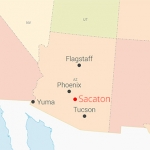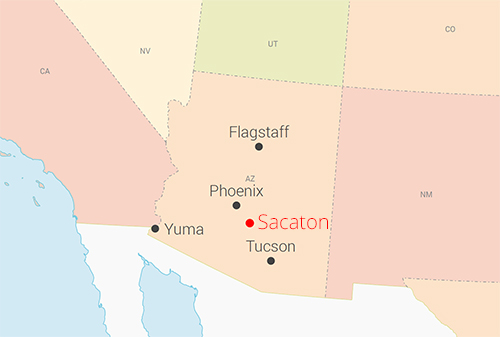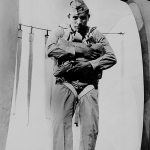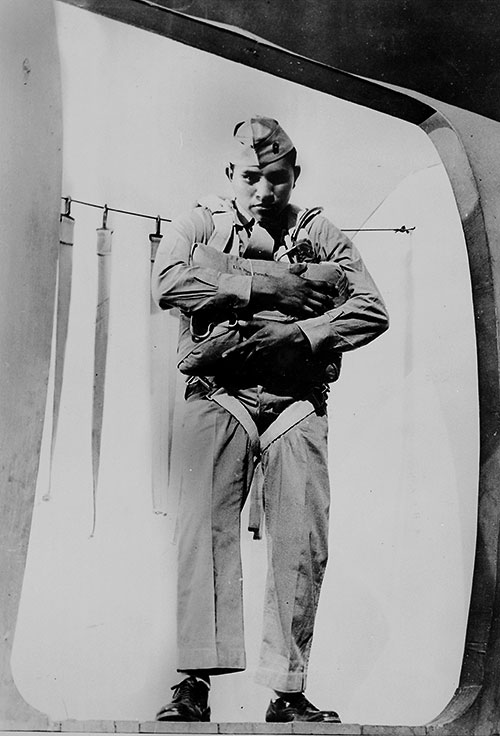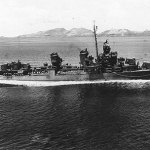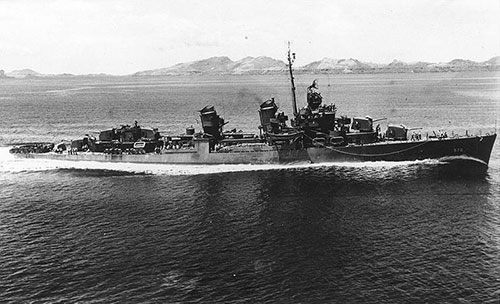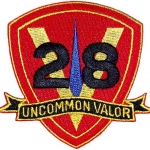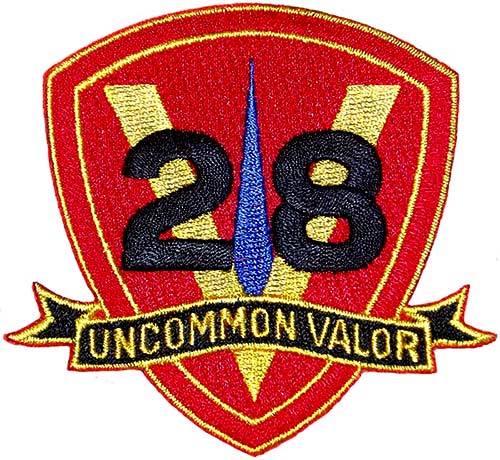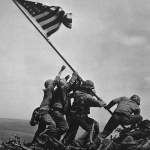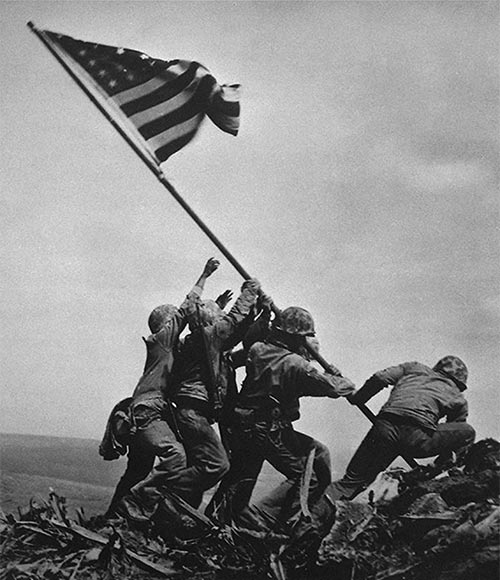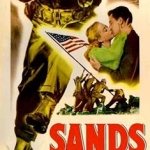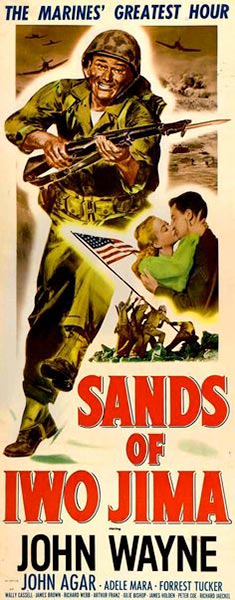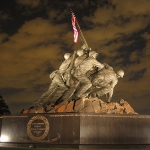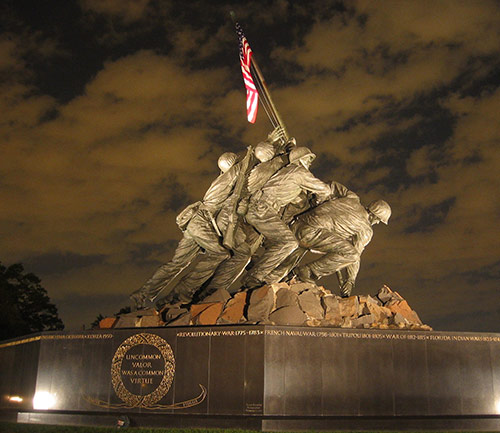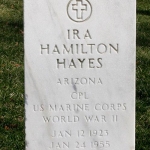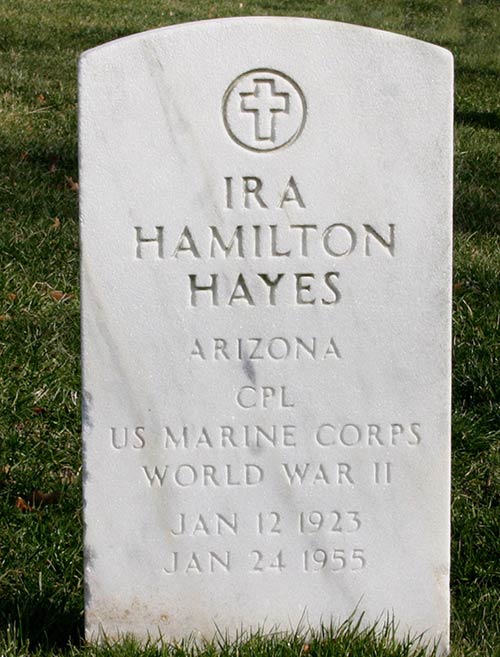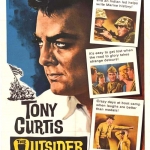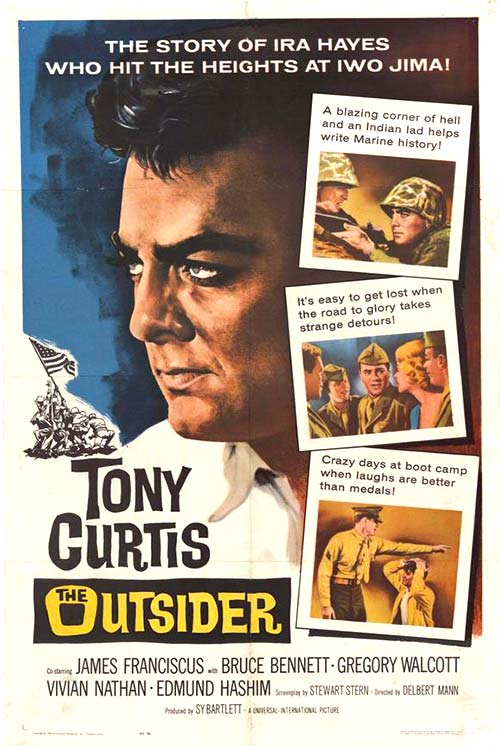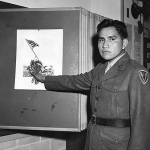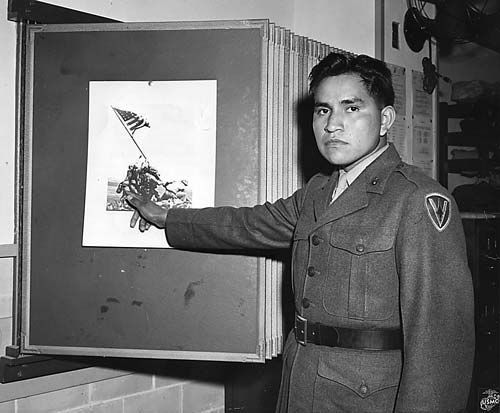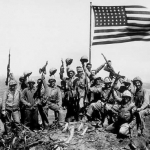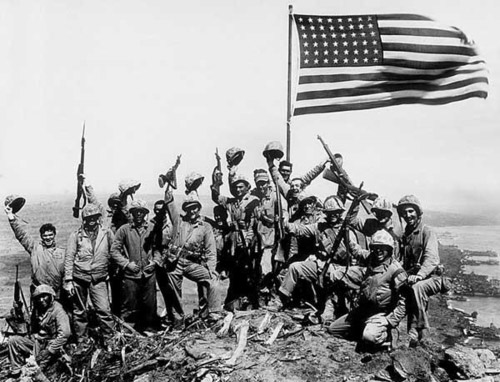Corporal Ira Hayes
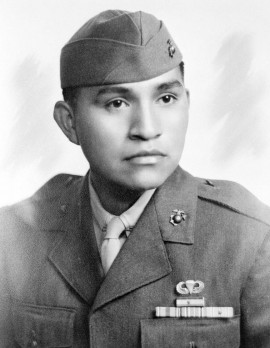
Biography
Ira Hayes was born on January 12th, 1923 in Sacalon, Arizona. He was a member of the Gila River Pima Indian Reservation. His father was farmer and a WWI veteran. It was said by childhood friends and acquaintances that he was shy and sensitive as a child. Loyal to this country he was outraged when the attack on Pearl Harbor was orchestrated. He vowed to defend the United States. In 1942 from May until June he served in the Civilian Conservation Corps.
On August 26th, 1942 he joined the Marine Corps. In San Diego, California he completed recruit training. After this he volunteered for the paratrooping program for the marines. He trained at Camp Gillespie at the Marine Parachute School where he graduated with silver jump wings.
On December 1st, 1942 he was promoted to Private First Class. On December 2nd, he joined Company B, 3rd Parachute Battalion, Divisional Special Troops, 3rd Marine Division. On March 14th, 1943 his company set out for New Caledonia in the Pacific Ocean. He was assigned to Camp Kisner from March 25th until September 26th. His company was renamed to Company K, 3rd Parachute Battalion, 1st Marine Parachute regiment of the Marine Amphibious Corps. On October 14th, he was sent to Guadalcanal and Vella Lavella on the Solomon Islands for occupational duty.
On December 4th, 1943 he was sent to Bougainville and fought against the Japanese forces. He served as an automatic rifleman. He was ordered back to California in early 1944 where his company was disbanded. He was reassigned to Company E, 2nd Battalion, 28th Regiment of the 5th Marine Division and then sent to Hawaii to train for the invasion of Iwo Jima.
On February 19th, 1945 he and his company landed on the beach of Iwo Jima near Mount Suribachi. On February 23rd Mount Suribachi was captured by American forces. Hayes and three other members of his platoon were ordered to lay telephone wire up Mount Suribachi. Other marines were sent to replace the American Flag atop the mount. This moment was immortalized in photograph by associated press photographer, Joe Rosenthal. This image cemented in the American civilian minds and helped insure hero status for all those involved.
On March 26th, 1945 he left Iwo Jima. He was one of five surviving members of his platoon. On April 15th, 1945 he was commissioned by President Franklin Roosevelt to help sell war bonds to pay for the war. His status as a hero was thought to help bolster the sale of war bonds. He continued to do this until May 24th. On June 18th he was promoted to Corporal. He joined the E Company Battalion, 28th Marines. From September 22nd until October 28th, 1945 he served occupation duty in Japan.
After returning from the War he received a lot of fame an recognition for his act of flag raising on Iwo Jima. In 1949 he played himself in Sands of Iwo Jima. It detailed the capturing of Mount Suribachi. Unfortunately fame did not sit well with Ira Hayes. He also could not reconcile what he saw in the war and the fact that he survived when so many of his comrades never came home alive. He also had no taste for the pomp and circumstance of being deemed a war hero. Ira found solace in alcohol and became addicted. He could never manage to hold a steady job and was more often than not being arrested for public intoxication.
On January 24th, 1955 he was found dead from exposure to the cold and alcohol poisoning. He was buried in Arlington National Cemetery. He was immortalized and remember in several manners. In 1954 the Marine Corps War Memorial was erected in Arlington, Virginia. In 1961 The Outsider was a film that was released which detailed his life story. In 1964 Johnny Cash recorded The Ballad of Ira Hayes which painted a rather sad picture of his life. More recently in 2006, Clint Eastwood directed a film, Flags of Our Fathers which covered the raising of the flag on Mount Suribachi.
Ira Hayes was a courageous soldier who was loyal to his comrades and believed in his duty to defend his country. It is disheartening but understandable that he fell into the clutches of alcoholism and was never able to reconcile the terrors of war and the emptiness of returning home without most of your comrades. However, his memory will forever live on as one of the famous and heroic flag raisers at Iwo Jima.
Corporal Ira Hayes' Ribbon Rack
Hover over or click award for more information.



















